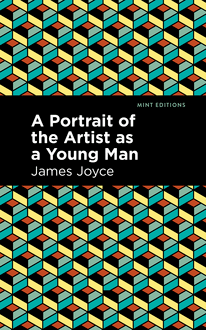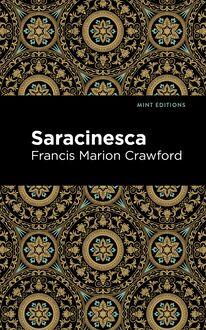-
 Univers
Univers
-
 Ebooks
Ebooks
-
 Livres audio
Livres audio
-
 Presse
Presse
-
 Podcasts
Podcasts
-
 BD
BD
-
 Documents
Documents
-
- Cours
- Révisions
- Ressources pédagogiques
- Sciences de l’éducation
- Manuels scolaires
- Langues
- Travaux de classe
- Annales de BEP
- Etudes supérieures
- Maternelle et primaire
- Fiches de lecture
- Orientation scolaire
- Méthodologie
- Corrigés de devoir
- Annales d’examens et concours
- Annales du bac
- Annales du brevet
- Rapports de stage
La lecture à portée de main
Vous pourrez modifier la taille du texte de cet ouvrage
Découvre YouScribe en t'inscrivant gratuitement
Je m'inscrisDécouvre YouScribe en t'inscrivant gratuitement
Je m'inscrisEn savoir plus
Vous pourrez modifier la taille du texte de cet ouvrage
En savoir plus

Description
The Primrose Path (1875) is the debut novel of Irish author Bram Stoker. Written over two decades before Dracula, his masterpiece, The Primrose Path helped to establish the Irish master of Gothic horror’s reputation as a leading writer of the early-twentieth century. Inspired by the temperance movement, Stoker crafts a simple narrative about a man brought low through temptation and a lack of opportunity. Originally serialized in The Shamrock, a weekly magazine published in Ireland, The Primrose Path is a largely unrecognized novel that deserves reassessment by readers and academics alike. Jerry O’Sullivan is a good man who wants noting more to provide for his young wife in order to start a family. Looking for work as a theatrical carpenter, he moves from his native Dublin to the sprawling city of London, where he soon finds work and hopes to settle down. After a series of accidents, however, he grows distant from his wife Katey and falls victim to the temptations of alcohol. As he begins to lose control, he grows jealous, loses his job, and begins to harbor dangerous fantasies. Soon, despite his moral upbringing, he risks committing an act too heinous to imagine. The Primrose Path is a gripping work of horror and naturalism by Bram Stoker, the secretive and vastly underrated creator of Dracula, one of history’s greatest villains. With a beautifully designed cover and professionally typeset manuscript, this edition of Bram Stoker’s The Primrose Path is a classic of Irish literature reimagined for modern readers.
Sujets
Informations
| Publié par | Mint Editions |
| Date de parution | 06 juillet 2021 |
| Nombre de lectures | 0 |
| EAN13 | 9781513287065 |
| Langue | English |
| Poids de l'ouvrage | 1 Mo |
Informations légales : prix de location à la page 0,0350€. Cette information est donnée uniquement à titre indicatif conformément à la législation en vigueur.
Extrait
The Primrose Path
Bram Stoker
The Primrose Path was first published in 1875.
This edition published by Mint Editions 2021.
ISBN 9781513282046 | E-ISBN 9781513287065
Published by Mint Editions ®
minteditionbooks .com
Publishing Director: Jennifer Newens
Design & Production: Rachel Lopez Metzger
Project Manager: Micaela Clark
Typesetting: Westchester Publishing Services
CONTENTS I. A H APPY H OME II. T O AND F RO III. A N O PENING IV. T HE N EW L IFE V. H OW THE N EW L IFE B EGIN VI. A S UMMONS VII. K ATEY ’ S T RIALS VIII. D OWN THE H ILL IX. T HE T RAIL OF THE S ERPENT X. T HE E ND OF THE J OURNEY
I
A H APPY H OME
“I wonder will any of them come, Jerry?”
The pretty little woman’s face got puckered all over with baby wrinkles, more suitable to the wee pink face that lay on her bosom than to her own somewhat pale one, as she made the remark.
Jerry looked up from his newspaper and gazed at her lovingly for a moment before he answered, his answer being a confident smile with a knowing shake of the head from side to side as who should say— “Oh, you little humbug, pretending to distress yourself with doubts. Of course, they’ll come—all of them.”
Katey seemed to lose her trouble in his smile—it is wonderful what comforters love and sympathy are. She drew close to her husband and held down the tiny bald pink head for him to kiss, and then, leaning her cheek against his, said in a soft cooing voice, half wifely, half motherly, “Oh, Jerry, isn’t he a little beauty.”
Children are quite as jealous as dogs and cats in their own way, and instinctively the urchin sprawling on the hearth-rug came over and pulled at his mother’s dress, saying plaintively, “Me too, mammy—me too.”
Jerry took the child on his knee. “Eh, little Jerry, your nose is out of joint again; isn’t it?”
A mother is jealous as well as her child, and this mother answered— “Oh, no, Jerry, sure I don’t love him less because I have to take care of the little mite.”
Further conversation was stopped by a knock at the door.
“That’s some of them stayin’ away,” said Jerry, as he went out to open the door.
As may be seen, Jerry and his wife expected company, the doubts as to whose arrival was caused by the extreme inclemency of the weather, and as the occasion of the festivities was an important one, the doubts were strong.
Jerry O’Sullivan was a prosperous man in his line of life. His trade was that of a carpenter, and as he had, in addition to large practical skill and experience gained from unremitting toll, a considerable share of natural ability, was justly considered by his compeers to be the makings of a successful man.
Three years before he had been married to his pretty little wife, whose sweet nature, and care for his comfort, and whose desire to perfect the cheerfulness of home, had not a little sided his success, and kept him on the straight path.
If every wife understood the merits which a cheerful home has above all other places in the eyes of an ordinary man, there would be less brutality than there is amongst husbands, and less hardships and suffering amongst wives.
The third child had just been christened, and some friends and relatives were expected to honour the occasion, and now the knock announced the first arrival.
Whilst Jerry went to the door, Katey arranged the child’s garments so as to make him look as nice as possible, and also fixed her own dress, somewhat disturbed by maternal cares. In the meantime little Jerry flattened his nose against the window pane in a vain desire to see the appearance of the first arrival. Little Katey stood by him looking expectant as though her eyes were with her brother’s.
Mrs. Jerry’s best smile showed that the newcomer, Mr. Parnell, was a special friend. After shaking hands with him, she stood close to him and showed him the baby, looking up into his dark strong face with a smile of perfect trust. He was so tall that he had to stoop to kiss the baby, although the little mother raised it in her arms for him. He said very tenderly—
“Let me hold him a minute in my arms.”
He lifted him gently as he spoke, and bonding his head, said reverently:—
“God bless him. Suffer little children to come unto me, for such is the Kingdom of Heaven.”
Katey’s eyes were full of tears as she took him back, and she thanked the big man with a look too full of sacred feeling for even a smile.
Jerry stood by in silence. He felt much, although he did not know what to say.
Another knock was heard, and again Jerry’s services were required. This time there was a large influx, for three different bodies has joined just at the door. Much laughter was heard in the hall, and then they all entered. The Body consisted of seven souls all told.
Place aux dames . We Irishmen must give first place always to the ladies. Of these there were four. Jerry’s mother and her assistant, Miss M’Anaspie, and Katey’s two sisters, one older and one younger than herself. The men were, Mr. Muldoon, Tom Price, and Patrick Casey.
Jerry’s mother was a quiet dignified lady, very gentle in manner, but with a sternness of thought and purpose which shone through her gentleness and forbid any attempt at imposition, as surely as the green light marks danger at a railway crossing. She had a small haberdashery shop, by which she was reputed amongst her friends to have realised a considerable amount of money. Miss M’Anaspie was her assistant, and was asked by Katey to be present out of pure kindness. She had originally set her cap at Jerry, who had very nearly succeeded in her aim. It was no small evidence of Katey’s genuine goodness of nature and her perfect trust of her husband that she was present; for most women have a feeling of possible hostility, or, at least, maintain an armed neutrality towards the former flames of the man that they love. Miss M’Anaspie was tall and buxom, and of lively manners, quite devoid of bashfulness. It puzzled many of her friends how, with her desire to be married, she had not long ago succeeded in accomplishing her wish. Katey’s sisters were pleasant, quiet girls, both engaged to be married—Jane to Price, and Mary to Casey, the former man being a blacksmith, and the latter an umbrella-maker, both being sturdy young fellows, and looking forward to being shortly able to marry.
Mr. Muldoon was the great man of the occasion. He was a cousin of Mrs. O’Sullivan’s, and was rich. He had a large Italian warehouse, which he managed well, and consequently was exceedingly prosperous. Personally he was not so agreeable as he might have been. He was small, and stout, and ugly, with keen eyes, and a sharply pointed nose; was habitually clean-shaven, and kept his breast stuck out like that of a pouter pigeon. He always dressed gorgeously, and on the present occasion, as he considering that he was honouring his pour relations, had got himself up to a pitch of such radiance that his old servant had commented on his appearance as he had left home. His trousers were of the lightest yellow whipcord; his coat was blue; his waistcoat was red velvet, with blue glass buttons; and in the matter of green tie, high collar, and large cuffs he excelled. His watch chain, of massive gold, with the “pint of seals” attached to the fob-chain after the manner of the bucks of his last generation was alone worthy of respect. His temper was not pleasant, for he was dictatorial to the last degree, and had a very unpleasant habit, something like Frederick the Great, of considering any difference of opinion as an insult intentionally offered to himself.
A man like this may be a pleasant enough companion so long as he goes with the tide, he thinking that it is the tide which goes with him; but when occasion of difference arises, the social horizon at once becomes overcast with angry clouds which gather quickly till the storm has burst. Oftentimes, as in nature—the great world of elements—the storm clears the air.
Mr. Mouldoon had been asked as an act possibly likely to benefit the new olive branch, for the Italian grocer was unmarried, and might at some future time, so thought Jerry and Katey in their secret hearts, take in charge the destinies of the new infant today made John Mouldoon O’Sullivan.
When the party entered the room Mr. Muldoon had advanced to Mrs. Jerry, and, as she was a pretty little woman, had kissed her in a semi-paternal way which made Miss M’Anaspie giggle. Mr. Muldoon looked round half indignantly, for he felt that his dignity was wounded. He considered that Miss M’Anaspie, of whose very name he was ignorant, was a forward young person, and in his mind determined to let her understand so before the evening was over.
After a few minutes the introduction had all been accomplished, and everybody knew everybody else. There was a great kissing of the baby, great petting of the two elder children, for whose delectation sundry sweets were produced from mysterious pockets, and much laughter and good-humoured jesting.
Mr. Muldoon prided himself upon being a good hand at saying smart thing, and felt that the present occasion was not one to be thrown away. Being a bachelor, he considered that his most proper attitude was that of ignorance—utter ignorance regarding babies in general, and this one in particular. When he was shown the baby he put up his eye-glass, and said:
“What is this?”
-
 Univers
Univers
-
 Ebooks
Ebooks
-
 Livres audio
Livres audio
-
 Presse
Presse
-
 Podcasts
Podcasts
-
 BD
BD
-
 Documents
Documents
-
Jeunesse
-
Littérature
-
Ressources professionnelles
-
Santé et bien-être
-
Savoirs
-
Education
-
Loisirs et hobbies
-
Art, musique et cinéma
-
Actualité et débat de société
-
Jeunesse
-
Littérature
-
Ressources professionnelles
-
Santé et bien-être
-
Savoirs
-
Education
-
Loisirs et hobbies
-
Art, musique et cinéma
-
Actualité et débat de société
-
Actualités
-
Lifestyle
-
Presse jeunesse
-
Presse professionnelle
-
Pratique
-
Presse sportive
-
Presse internationale
-
Culture & Médias
-
Action et Aventures
-
Science-fiction et Fantasy
-
Société
-
Jeunesse
-
Littérature
-
Ressources professionnelles
-
Santé et bien-être
-
Savoirs
-
Education
-
Loisirs et hobbies
-
Art, musique et cinéma
-
Actualité et débat de société
- Cours
- Révisions
- Ressources pédagogiques
- Sciences de l’éducation
- Manuels scolaires
- Langues
- Travaux de classe
- Annales de BEP
- Etudes supérieures
- Maternelle et primaire
- Fiches de lecture
- Orientation scolaire
- Méthodologie
- Corrigés de devoir
- Annales d’examens et concours
- Annales du bac
- Annales du brevet
- Rapports de stage




















